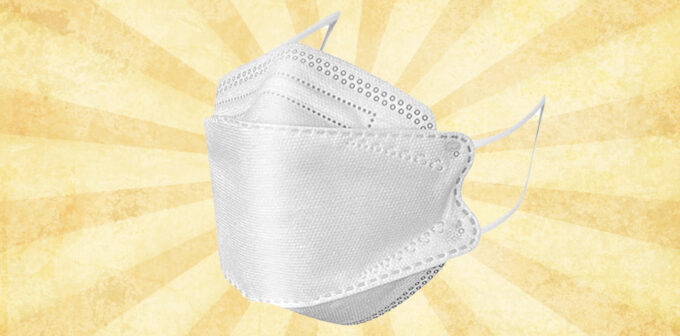
Research comparing four designs revealed substantial differences in fit and comfort.
The three-panelled, flat-fold design is the most comfortable and effective N95 mask for healthcare workers, an Australian study has found.
Researchers from the Royal Melbourne Hospital and the University of Melbourne compared the fit, comfort and usability of four types of N95 mask among 2000 healthcare workers who took part in The Royal Melbourne Hospital’s respiratory protection program. Their findings were reported in the MJA this week.
The three-panelled, flat-fold mask demonstrated the best quality fit and was much more comfortable and usable than the flat-fold cup, semi-rigid cup and duckbill designs, despite only 8% of participants reporting that they preferred this mask prior to the study.
Healthcare workers participating in the study underwent quantitative fit testing for at least three different masks, with the fit factor measured by a PortaCount machine that determined the concentration of particles in ambient air outside versus inside the N95 mask. Qualified testers were present to ensure each mask was worn and sealed before testing began.
A short while after the fit testing, participants were asked to fill out an online survey measuring the overall comfort and ease of use of each mask on a five-point scale, one being poor and five being very comfortable and easy to use. They were asked about the quality of the mask’s seal, the process of donning and doffing the mask, breathability and any skin and eye irritation caused by the masks.
For the quantitative fit ratings, the three-panelled, flat-fold mask had the highest pass rate of 96%, with only 70 failed tests from around 2000. The semi-rigid cup and duckbill designs had pass rates of 65% and 59% respectively, while the flat-fold cup mask provided the lowest quality fit with a pass rate of 32%.
With regards to comfort and usability rankings, the three-panelled, flat-fold was the only mask to score four out of five for both median comfort and overall assessment of use. Among respondents’ free-text responses which accompanied the survey questions, this mask was the only one to receive more positive than negative comments.
The duckbill and flat-fold cup designs received rankings of three for comfort and overall usage, while the semi-rigid had by far the lowest scores of two for both categories.
According to the authors, the semi-rigid’s poor performance was most likely due to the rigidity of the mouthpiece and exceedingly tight strap. From the free-text comments, half of the survey respondents said that the mask was too tight, while a quarter reported difficulty breathing when wearing it.
While the fit rate, comfort and usability of N95 masks are not required to be measured in order to certify them for use, researchers hope that the results of this study show the need for these factors to be taken into account when masks are being procured for healthcare workers.
“To achieve maximum respiratory protection for our health care workers, respiratory protection program administrators and state and federal health departments should select and stockpile the most effective respirator models by incorporating clinical data into their decisions,” the authors wrote.

